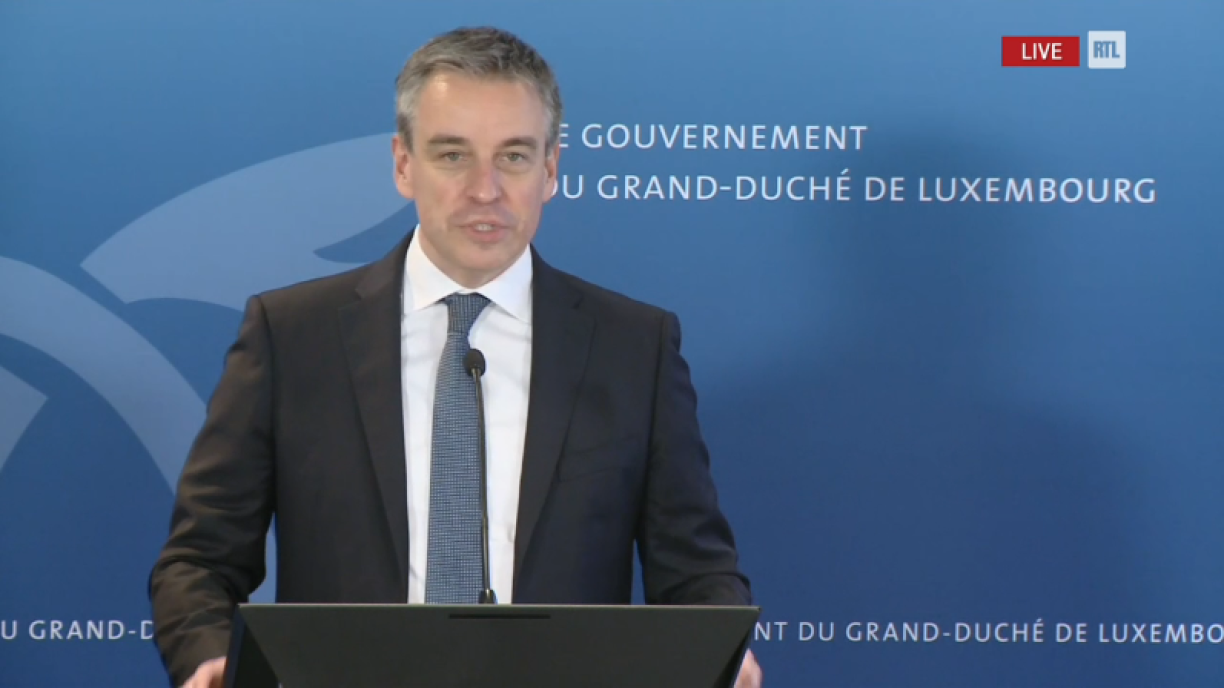
Mandatory masks, alternate weeks of distance learning for more classes, and obligatory negative tests for pupils returning from quarantine - these are a few of the stricter measures which will be in place when schools reopen after half term.
These are the new measures in education as of 22 February
Minister Meisch spent much of Friday morning’s briefing defending the decision to keep schools open as long as possible, citing pupils’ mental health and well-being as a deciding factor. According to youth psychological services, there has been a 15% increase in young people contacting them with suicidal concerns, on top of other indicators of poor mental health. There are additional concerns over the psychiatric support available for young people, which could potentially be overwhelmed by the number of patients requiring assistance as more and more pupils struggle under the circumstances.
Meisch said schools should be the last sector to close down for this reason, as closures denied children and young people the social interaction which is crucial to their development. He said this was not merely for education reasons, and added he would be instigating discussions between staff and parents to continuously monitor pupils’ wellbeing.
Despite this, it cannot be denied that cases in schools have soared since the winter term began in January. 30% of infections in late January were traced back to clusters, compared to just 15% in November. Meisch attributed this to the new variants of the virus, which have already been linked to infections in some schools. The Minister said he believed it was merely a matter of time until the UK variant dominated school settings, but that they would attempt to keep schools open as long as possible while keeping students safe.
Staff and students will be tested more frequently from 22 February, while pupils from cycle 2 of primary school and up must wear masks during class. Secondary schools will return to A/B distance learning weeks for all classes except for first years and final years. The programme for end-of-school exams will be slashed by 15% to make allowances for the exceptional circumstances and to offer final year students the best chance of success.
Quarantine will now be imposed from the first contact with a positive case. This can apply to whole classes, or even cycles if required. A negative test will be required before a pupil can return to class.
Rapid antigen tests are expected to be introduced to schools in March, with older students to administer the tests themselves.
Meisch has not ruled out a return to virtual learning around Easter, saying one or two weeks could be added to either side of the Easter holidays if the situation required it.
Another option in play is a switch to morning lessons only, which would see school canteens closed and reduce mixing of pupils with other classes. This would also apply to wraparound care (Maisons Relais). Meisch added that more staff would be recruited for wraparound care, while the Ministry has invested in 5,000 more tablets to be made available to students who do not have the necessary resources at home.
The Minister called upon adults to offer the younger generation additional support in withstanding the crisis. He said the curriculum would be adjusted to include coronavirus discussion, to offer background and assistance in adapting to the new normal.
He also said classrooms would be equipped with more board games, citing the need for fun and socialising both inside and outside of schools. Meisch drew upon personal experience with regard to the latter, offering up a small anecdote from his home life: he and his children cook a meal from a different country or culture every night, and follow the meal up with a game.
It remains to be seen whether the Minister’s experiences will match those of other parents and staff in the sector.
Schools to reopen, stricter health measures, exam material reduced by 15%
As it happened: Press conference with Claude Meisch